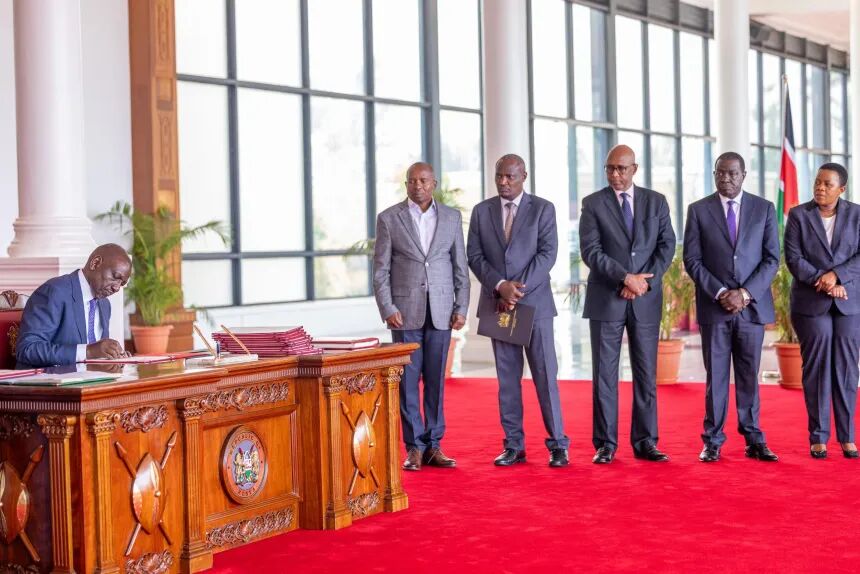Ruto Government Targets Political Patronage in Parastatals with Sweeping Reforms in New Bill
The Government-Owned Entities (GOE) Bill, 2025, currently tabled in Parliament, seeks to block individuals affiliated with political parties from serving on the boards of state-owned enterprises. The Bill proposes a transparent, merit-based appointment process, to be conducted by an independent panel under the National Treasury.
President William Ruto’s administration has vowed to end the long-standing practice of rewarding political loyalists with top public positions, with National Treasury Cabinet Secretary John Mbadi leading the charge.
“The process is ongoing. Appointments to the boards are currently political, but we are keen on reforming the management of commercially viable state-owned parastatals,” Mbadi told senators. “The appointments will be competitive and centralised under the National Treasury.”
The Bill aims to shift appointment powers from individual ministries to a centrally coordinated system overseen by Treasury. This marks a significant break from tradition and is expected to boost professionalism and governance in public institutions.
Under the proposed legislation, individuals who have been affiliated with any political party in the past five years will be disqualified from serving as independent directors on the boards of these entities.
“A person is not qualified to be appointed as an independent director of a government-owned enterprise if that person has in the past five years been affiliated with a political party,” the Bill reads.
In addition, parastatal boards will be empowered to elect their own chairpersons from among the independent members, a shift from the current structure where the President appoints board chairs. Board members and chairs will also be barred from participating in any activity that may lead to a conflict of interest.
The reforms, approved by Cabinet in June, seek to professionalize boardrooms, enhance transparency, and boost the commercial viability of public enterprises.
The GOE Bill also introduces a new classification of state corporations. Commercial state bodies, now to be referred to as government-owned enterprises, include Kenya Ports Authority, Kenya Power, Kenya Pipeline Company, Kenya Airports Authority, Kenya Railways Corporation, and Kenya Electricity Generating Company.
A 2023 National Treasury report revealed that over KSh300 billion was spent on bailing out struggling parastatals over the past decade. In response, the government is exploring the option of merging or dissolving non-viable agencies.
Historically, appointments to parastatal boards have been used to reward political allies and election losers. However, the GOE Bill aims to end this culture and install a more professional, performance-driven system.
Several 2022 election losers have already landed top positions. Among them is former presidential candidate David Mwaure, who now chairs the Board of Trustees at the National Environment Trust Fund.
If passed, the Bill is set to redefine how public enterprises are managed, with merit, not political loyalty, as the key qualification.







[9921]SG8Casino Philippines: Best Online Casino. Quick SG8Casino Login, Register, & App Download for Premium Slot Games and the Ultimate Gaming Experience. Experience SG8Casino: The Philippines’ best online casino. Fast sg8casino login, easy register, and app download for premium sg8casino slot games. Join today! visit: sg8casino
5s0s3l